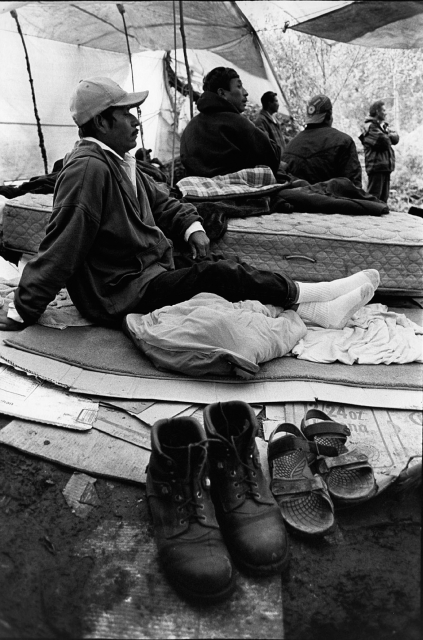http://www.indybay.org/newsitems/2008/02/03/18476768.phpIn December 2005, Wisconsin congressman James Sensenbrenner convinced his Republican colleagues (and to their shame, thirty-five Democrats) to pass one of the most repressive immigration proposals of the last hundred years. His bill, HR 4437, would have made federal felons of all twelve million undocumented immigrants in the United States, criminalized teachers, nurses, or priests who helped them, and built a 700-mile wall on the U.S. Mexico border to keep people from crossing.
Representative Sensenbrenner is more than just a leader of Congressional xeno-phobes, however. His family is intimately involved in creating the conditions that cause migration, and then profits from the labor it makes available. In fact, the Sensenbrenner family connections are a microcosm of the political economy of migration itself.
James Sensenbrenner's grandfather started Kimberly Clark, one of the world's largest paper companies, and Sensenbrenner and the family trust remain important stockholders. The company's Mexican counterpart, Kimberly Clark de Mexico, is a close associate of the Mexican mining giant, Grupo Mexico. One of KC's former executives, J. Eduardo Gonzalez, sits on its board.

Chatino indigenous immigrants from Oaxaca live outdoors in a field in Sonoma County's wine country.
Grupo Mexico was a big winner in the neoliberal economic reforms that transformed the Mexican economy over the last twenty years. In the 1990s, the corporation became the owner of two of the world's largest copper mines, in Cananea and Nacozari, which were formerly nationally owned enterprises. The mines lie just a few dozen miles south of the Arizona border.
In 1998, Grupo Mexico provoked a strike in Cananea, over moves to reduce its workforce and labor costs. Close to a thousand miners lost their jobs. Many were blacklisted and left for "the other side."
Then, last year, the mining giant prevailed on the Mexican government to depose the president of the country's miners union, Napoleon Gomez Urrutia. Gomez had accused the company of industrial homicide after the terrible Pasta de Conchos disaster, when sixty-eight men died in a coal mine explosion. Grupo Mexico also didn't like his drive to raise mining wages beyond government-set limits.
FULL story at link.